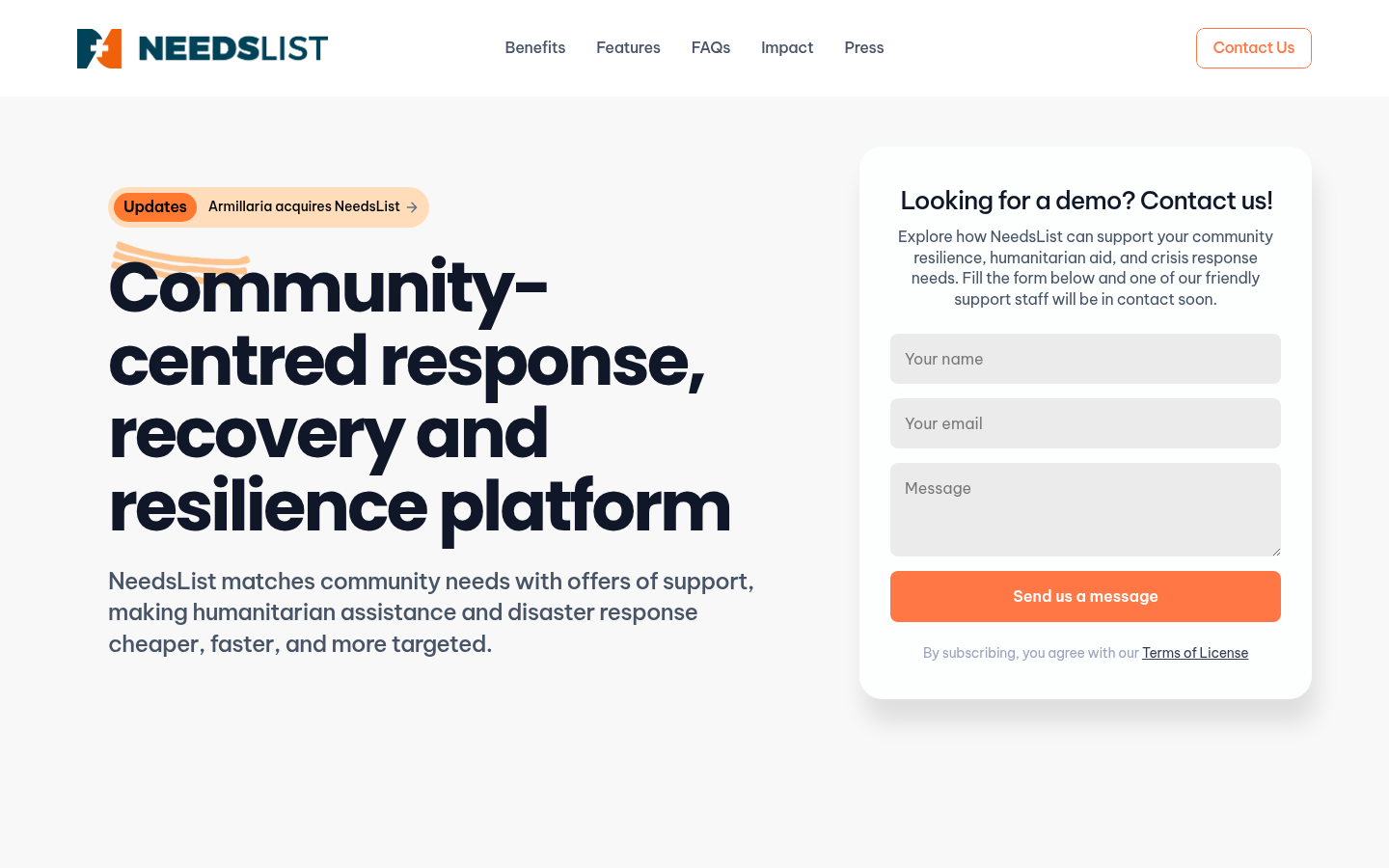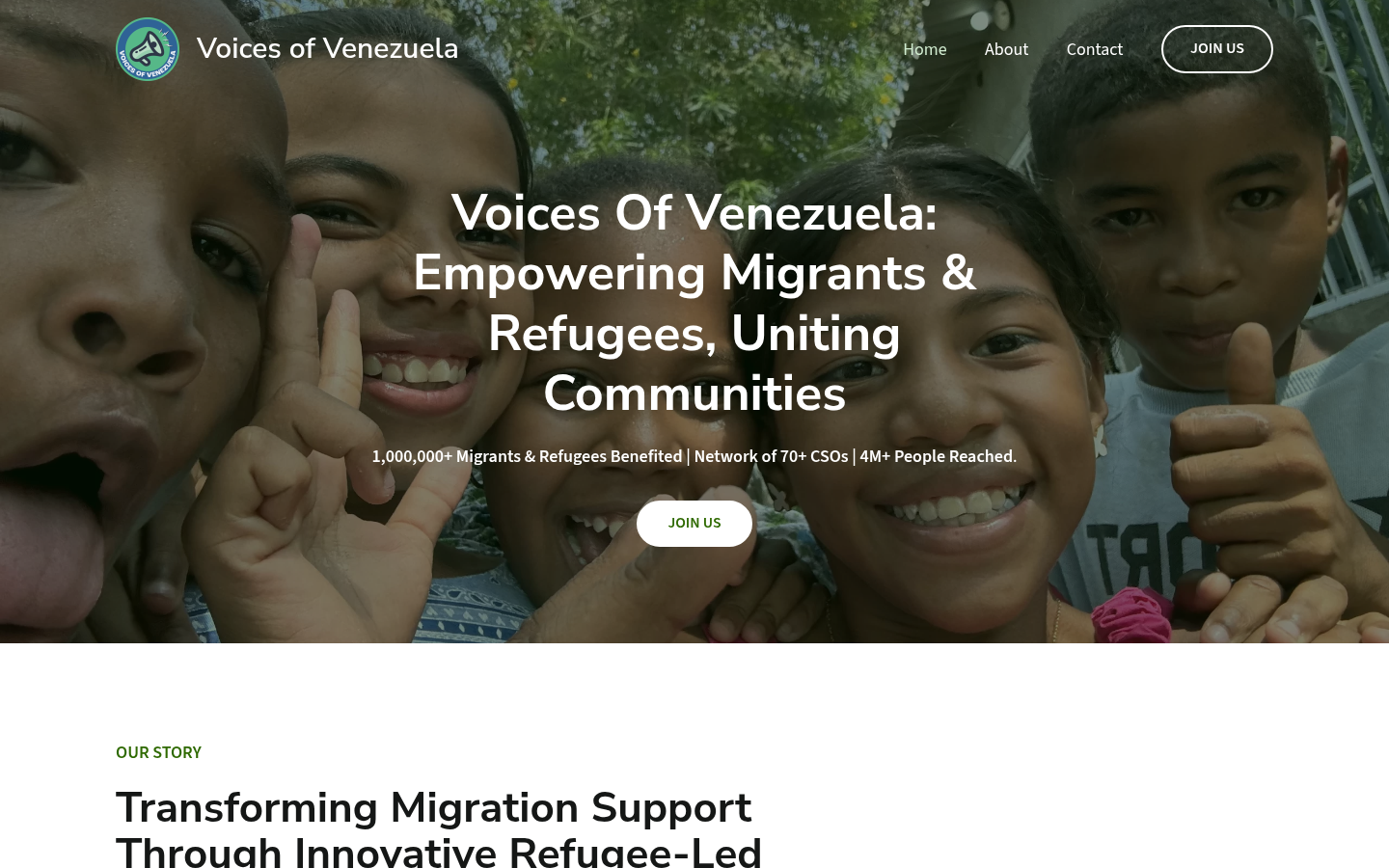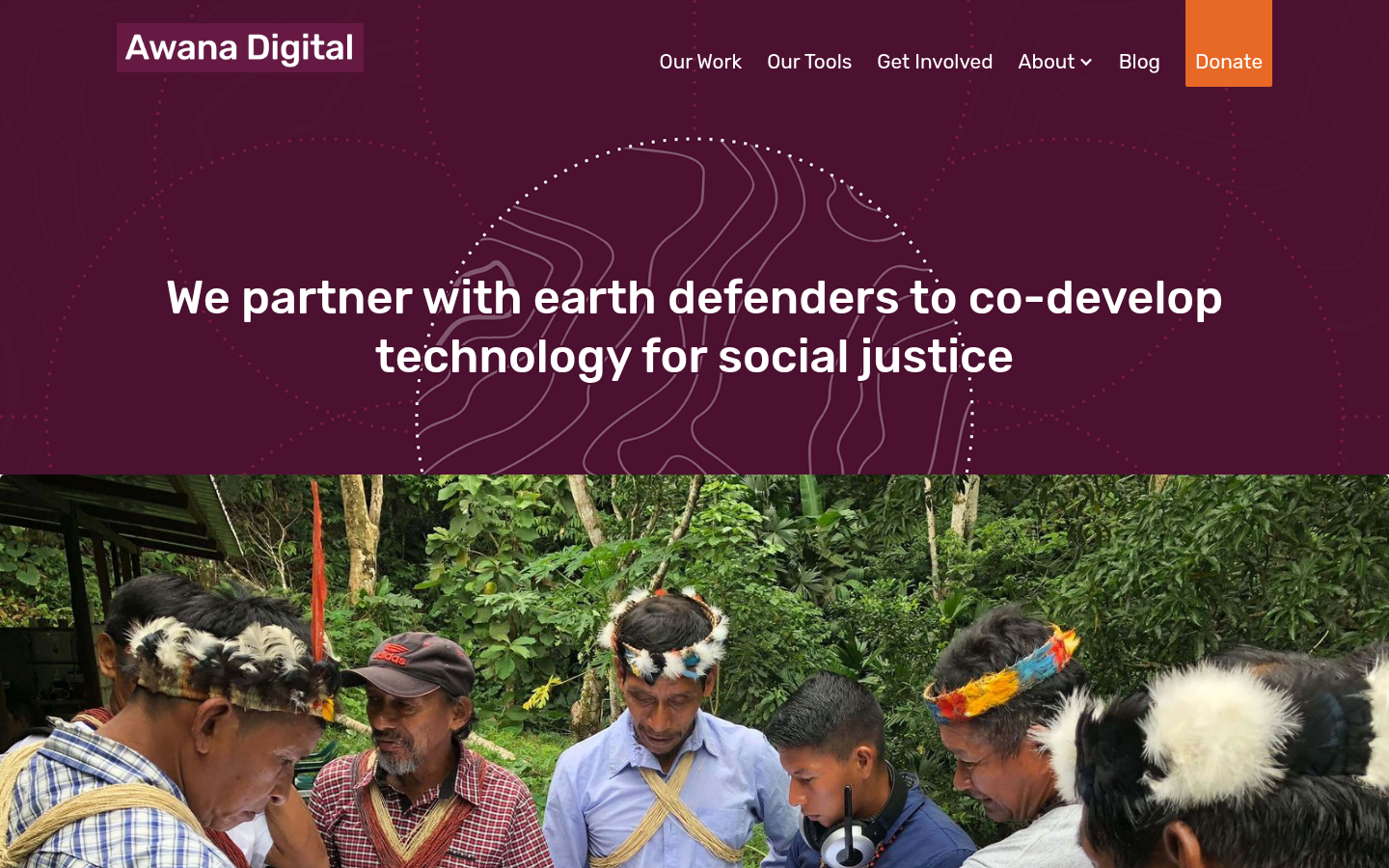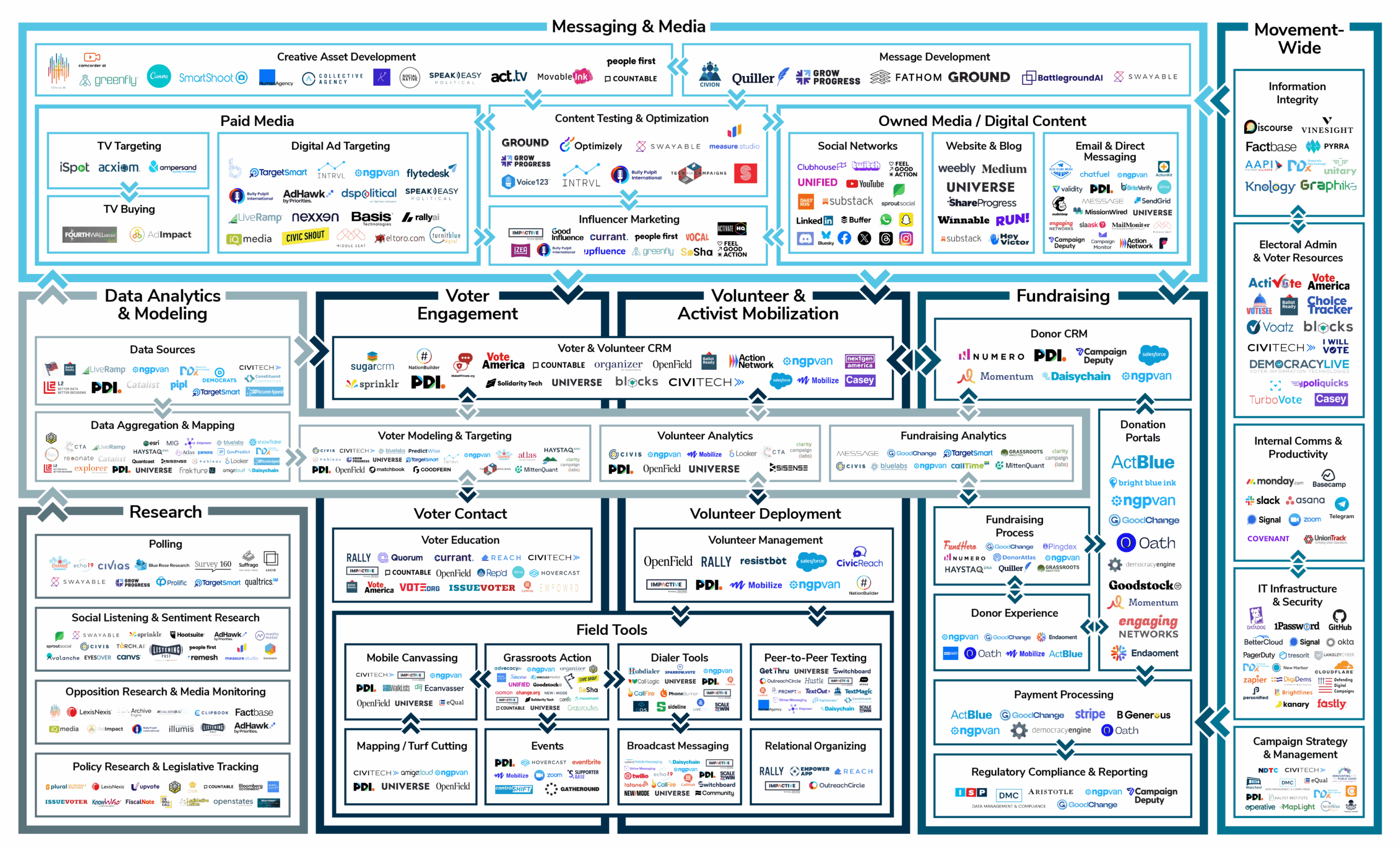Civic Tech Field Guide
Sharing knowledge and productively growing the fieldSearch Results - ty (4986)
Showing 4986 Results

Centre for Internet and Society
194, 2nd C Cross Rd, Stage 2, Domlur, Bengaluru, Karnataka 560071The Centre for Internet and Society (CIS) is an Indian, non-profit organization that undertakes interdisciplinary research on internet and digital technologies from policy and academic perspectives -- including hundreds of articles on Accessibility.

The Center for Informed Democracy and Social Cyber-Security (IDeaS)
5000 Forbes Avenue, Pittsburgh, PA 15213, USACarnegie Melon's center for disinformation, hate speech and extremism online

Digital Rights Community Grant Program
1 Yonge Street 702, Toronto CanadaThe Digital Justice Lab, Tech Reset Canada, and The Centre for Digital Rights are offering individuals and community organizations a one-time community microgrant of $1000-3000 for public education on digital rights.

PakAirQuality
PakistanPakistan Air Quality Initiative (PAQI پاکی) provides community-driven air quality data to increase social awareness.

Citybase
30 North LaSalle Street, Chicago, IL 60602, USACityBase is a gov tech platform that connects cities and citizens to make government more accessible and efficient.

This weekly digest email helps you more efficiently manage your portfolio so you prioritize the right donors at the right time and raise more

Internet Universality Indicators (ROAM-X)
UNESCO, Place de Fontenoy, Paris, FranceA map of the Internet measuring its compliance with human Rights (R), evaluating its Openness (O) and Accessibility (A), and assessing the involvement of Multistakeholder actors (M) in its governance

Find out more about Data City | Data Nation, a global data sharing initiative between Singapore and London.

Otwarty Gdańsk
Gdańsk, PolandZapraszamy do korzystania z otwartych danych Miasta Gdańska. W serwisie publikujemy dane m.in. o miejskich finansach, rozkładach jazdy komunikacji miejskiej, demografii. Otwarte dane czekają na wykorzystanie przez Ciebie, Twoją organizację pozarządową lub firmę!

A powerful investigative look at data-based discrimination—and how technology affects civil and human rights and economic equity

“Overall we believe the world we live in is facing radical change – and our aim is to help find positive futures in the face of that change.”

Guide to organizational security
The Engine Room, Albany Street, London, UKWe partnered with the Ford Foundation to look at how civil society can strengthen their digital security, what and who is out there to support them, and how they can develop better digital security practices.

Traffy Fondue
Thailand (Prathet Thai)Traffy Fondue is an application designed for communicating urban issues between the public and the responsible authorities.

Tan Rak
Thailand (Prathet Thai)Mobile application to support the recording of mosquito larval survey data. Together with the coordinates of the houses/buildings and the report of the entomological index immediately after the survey ends.

Fondos para Eventos de la Comunidad CLISI
Bolivarian Republic of Venezuela¡Atención, comunidad! 🎉 El Centro Latinoamericano de Investigaciones Sobre Internet (CLISI) celebra su 8º Aniversario y quiere festejarlo impulsando tus ideas. Por ello, lanza su Convocatoria Anual de Fondos para Eventos Comunitarios. Si tienes un proyecto para organizar una charla, un taller, un festival de cine o cualquier evento gratuito que beneficie a tu comunidad, ¡esta es tu oportunidad! La organización ofrece financiamiento de hasta 300$ y su asesoría para hacerlo realidad.

Tenant Watch
Michigan, USATenant Watch is a mobile-first platform that empowers renters to report unsafe housing conditions and enables cities to monitor violations, enforce codes, and improve housing equity through data-driven oversight.

Āhau
OceaniaĀhau is a Whānau Data Platform that helps whānau-based communities (whānau, hapū, Iwi) capture, preserve, and share important information and histories into secure, whānau managed databases and servers. Keep track of whānau whakapapa information, preserve and share cultural records and narratives, own and control whānau data and servers, and build a stronger sense of whānau, community and identity. (whānau is an extended family or community of related families who live together in the same area. Origin: New Zealand)

NaTakallam
United States of America (the)NaTakallam leverages the freelance digital economy to provide income to refugees, displaced persons & their host community members, by hiring them as online tutors, teachers, translators & cultural exchange partners, regardless of their location & status.

Needslist
United States of America (the)NeedsList matches community needs with offers of support, making humanitarian assistance and disaster response cheaper, faster, and more targeted.

Datavoros
Mexico (Estados Unidos Mexicanos)Datávoros is a research project on data collection through mobile applications developed by governments and companies. Their analysis focuses on understanding what data is collected and how, what permissions are requested, and what security and privacy measures are in place. It is built to create accountability and transparency for users.

Talent Beyond Boundaries (TBB)
United States of America (the)The organisation focuses on making skilled migration systems for refugees more accessible, and to create a world where displaced people can safely migrate for work, using their skills to rebuild their lives with dignity and purpose. It also collaborates with governments to achieve its purpose.

The Refugee Buddy Project
United Kingdom of Great Britain and Northern Ireland (the)A community group led by migrants and refugees formed in 2017, to provides support in the form of buddies, advocacy, financial and emotional support for refugees seeking safety in Scotland (specifically Hastings, Rother, and Wealden).

Watch The Med
European Union (EU)Watch The Med is an online mapping platform to monitor the deaths and violations of migrants’ rights at the maritime borders of the EU. The WatchTheMed project was initiated as part of the 2012 Boats4People campaign in the Central Mediterranean. Today the project further involves a wide network of organisations, activists and researchers. Through the transnational cooperation with migrants’ rights organisations, activists, researchers, migrants, seafarers active in, around and beyond the Mediterranean and the use of new mapping technologies, WatchTheMed aims to document the deaths and violations that are the structural product of the militarized Southern European border regime. The online map allows to spatialise incidents across the complex legal and political geography of the Mediterranean Sea. Through the accounts of survivors and witnesses, but also the analysis of ocean currents, winds, mobile phone data and satellite imagery, it is possible to determine in which Search and Rescue zone, jurisdictions and operational areas an incident occurred – as well as showing other boats who were in the vicinity of those in distress. Spatialising such information is essential to determine responsibility for violations at sea. Apart from reconstructing past events, the participatory nature of the platform allows many different actors to to indicate ongoing situations of distress. The documentation generated by WatchTheMed seeks to support the work of organisations that defend migrants’ rights, inform migrants of their rights and security at sea, pressure authorities into respecting their obligations at sea, support the ongoing campaigns by the relatives of the dead and disappeared at sea, and support legal proceedings against those who violated the rights of migrants.

Voices of Venezuela
Latin AmericaVoices of Venezuela (VOV) is committed to empowering Venezuelan migrants through innovative, AI-powered solutions and community-driven initiatives.

Jangala
United Kingdom of Great Britain and Northern Ireland (the)Jangala is a technology charity dedicated to providing essential internet access globally, with the goal of connecting 4 million people to the internet by 2030. Founded in 2015 as a volunteer initiative providing Wi-Fi to 5,000 people in the Calais Jungle refugee camp, Jangala offers a unique approach through its novel connectivity solutions, and takes great pride in its strong partnerships with international aid actors, grassroots organisations and public bodies.

Humanitarian OpenStreetMap Team (HOT)
United States of America (the)HOT is an international team dedicated to humanitarian action and community development through open mapping. They work together to create open map data which revolutionises disaster management by enabling disaster responders to reach those in need, and contributes to achievement of the Sustainable Development Goals.

Paper Airplanes
United States of America (the)Paper Airplanes is a non-profit that seeks to prepare university students in conflict zones to be able to finish their university degrees through English language programs, among other initiatives.

ALMAMAR App
Germany (Deutschland)ALMAMAR is a newly developed intervention for refugees that supports them in coping with psychological problems (e.g. sadness or anxiety). ALMAMAR is based on a scientifically reviewed program that has already been used successfully in various countries. The program is either internet-based - on a smartphone or computer - with written contact or face-to-face contact. Participation is free of charge.

Taxonomising Resistance Technologies
BangaloreThis taxonomy is a living repository of digital systems that fall under the definition of what we call ‘Resistance Technology’ or ‘ResTech’, a digital layer in the migration sphere that is community-led, and built to fill gaps in information, welfare, and development through bottom-up means, thereby rebalancing existing power structures and enabling negotiation for people on the move.

Contratados.org
Mexico City, CDMX, MexicoContratados.org allows workers to share their experiences and write reviews about their recruiters and employers in order to make the recruitment process transparent and generate a mechanism for accountability for compliance or non-compliance with the obligations of employers and/or recruiters. This information-sharing initiative fills a critical gap in the information available to migrant workers, advocates, and governments about the practices and actors involved in international labor recruitment. Contratados.org seeks to increase the power of the migrant worker within the recruitment process and , to end abuses in recruitment and employment within temporary work programs.

EUMigraTool (EMT)
European Union (EU)The EMT is created with the purpose of designing models to predict migration in the EU and to develop a trustworthy tool that can exclusively be used by municipalities and civil society organisations. The tool is also beneficial in providing policy recommendations for receiving migration flows in the EU in accordance with human rights and for optimising integration of refugees in host countries.

Humans In The Loop
European Union (EU)Our goal is to provide digital work and training opportunities in some of the areas of the world which are hit hardest by armed conflict and forced displacement. We recognize the complexity of working in such fragile contexts and in order to navigate the challenges around employing and paying people in these locations, we partner with a network of established local organizations with a proven track record.

MeshPoint One
European Union (EU)MeshPoint One believes that access to Internet is one of basic human rights. Their mission is to enable Internet access and improve the quality of life for people in disaster struck areas. Also by empowering people in rural communities to take action to build their own village telecoms to address disadvantage, become more sustainable and increase local control. Currently, they are focused on Syrian refugees in Croatia.

Awana Digital
United States of America (the)Digital Democracy’s mission is to work in solidarity with frontline and indigenous communities to use technology to defend their environmental and human rights. We partner with environmental defenders to co-design and co-develop tools they can use to defend critical ecosystems and Indigenous cultures. Digital Democracy helps our partners achieve transformative change and works toward a world where all people can participate in decisions that govern their lives.

CultureLabs
European Union (EU)The CultureLabs platform aims to systematise and spread knowledge about participatory projects in the field of cultural heritage and beyond. Through its functionalities and the variety of content it provides, it aspires to become a single point of reference for those who wish to organize participatory projects by taking advantage of digital technologies through a human rights lens. Among others, it addresses refugees in Europe through its various initiatives.

Sponsor Lead Service Line Replacement Efforts & Drinking Water Infrastructure
United States of America (the)Looking to support public drinking water infrastructure and health equity at scale? Help accelerate the removal of 9.2 million lead service lines nationwide and explore how your brand can be part of a trusted, nationally visible civic tech initiative. See how your organization can make a measurable public health impact through transparent sponsorship opportunities.

Digital Public Infrastructure For Digital Governments
OECD, Rue André Pascal, Paris, FranceThis OECD policy paper explores digital public infrastructure (DPI), defined as shared digital systems that are secure and interoperable and that can support the inclusive delivery of and access to public and private services across society.

The DPI Approach: A Playbook
India (Bhārat)This DPI playbook is designed as a practical and public resource that low and middle-income countries (LMICs) in particular can utilize in building an inclusive and rights-based DPI.

2024 Political Tech Landscape Report
United States of America (the)Each year, we track developments across the political technology space, providing a window into how our ecosystem is evolving—and what it means for Democratic campaigns and progressive infrastructure. This year’s report focuses on the turbulent 2024 election cycle and the hard lessons it left in its wake.








